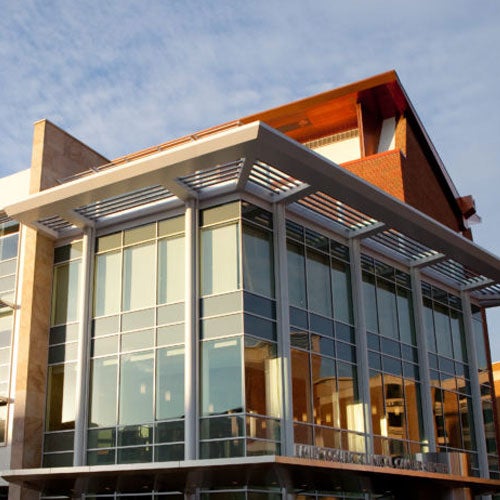 University of Virginia Cancer Center is partnering with seven community health centers to get more Virginians screened for cancer. UVA Health is working with these Federally Qualified Health Centers (FQHC) – federally funded nonprofits that provide care in medically underserved areas – to launch the Virginia FQHC Cancer Screening Collaborative.
University of Virginia Cancer Center is partnering with seven community health centers to get more Virginians screened for cancer. UVA Health is working with these Federally Qualified Health Centers (FQHC) – federally funded nonprofits that provide care in medically underserved areas – to launch the Virginia FQHC Cancer Screening Collaborative.
The collaborative will develop and implement evidence-based best practices to help more people get screened for cancer as well as compare different approaches to see which are most effective. This effort is supported by a two-year, $250,000 funding award through the Eugene Washington PCORI Engagement Award Program, an initiative of the Patient-Centered Outcomes Research Institute (PCORI).
“We look forward to this vital partnership, which will expand cancer screening access for our most vulnerable populations. This collaborative effort marks a crucial step in reducing cancer and enhancing screening accessibility among Virginians,” said Wendy Cohn, PhD, associate director of UVA Cancer Center.
Why is Improving Cancer Screening Needed?
Cancer screening tests are key in detecting pre-cancer or cancer early, helping to make cancer easier to treat. But many people, especially populations that experience health disparities, do not get screened despite being eligible. Recognizing this challenge, collaborative opportunities can assist in identifying factors contributing to disparities and developing strategies to ensure equitable access to cancer screening.
Over the next two years, UVA Cancer Center will collaborate with the FQHCs, patients and academic researchers on new approaches. This approach will advance our capacity to conceptualize and plan for future research to address cancer screening needs. “FQHCs are in unique positions to voice our expertise and the lived experiences of our patients in order to influence cancer screening research to be patient-centered and relevant to the communities we live and work in,” said Sabrina Mitchell, APRN, with Stone Mountain Health Services.
Accelerating Cancer Screenings across Virginia
The launch of the collaborative expands on the successful collaboration between UVA Cancer Center and FQHCs which has already resulted in overall increased cancer screening rates for the communities served by the FQHCs.
Partners in the collaborative include Blue Ridge Medical Center, Central Virginia Health Services, Stone Mountain Health Services and Tri-Area Community Health, who received federal grants to increase breast, cervical and colorectal cancer screenings in collaboration with UVA Cancer Center. Another partner in the collaborative, Community Health Center of the New River Valley, received funding from the Jeffress Trust to work with UVA Cancer Center to increase colorectal cancer screening.
To help more communities increase access to cancer screenings, Southwest Virginia Community Health Systems and Connect Health + Wellness in Martinsville have joined the collaborative. “This work is very timely, as it aligns with our top-3 quality priorities for 2024 – breast cancer screening, colorectal cancer screening and cervical cancer screening – where rates seemed to fall flat during Covid and have yet to recover,” said Marcus Stone, chief executive officer of Connect Health + Wellness.
The Virginia FQHC Collaborative represents a commitment to community engagement and collaboration, Cohn said.
“FQHCs provide care to people who are often hard to reach and face challenges getting cancer screening services because of where they live and their complex healthcare needs,” she said. “This initiative aims to advance cancer screening across Virginia by fostering collaboration and innovation throughout Virginia communities.”
PCORI is an independent, nonprofit organization authorized by Congress with a mission to fund patient-centered comparative clinical effectiveness research that provides patients, their caregivers and clinicians with the evidence-based information they need to make better informed health and health care decisions.
Article written by Eric Swensen, Public Information Officer, UVA Health.
